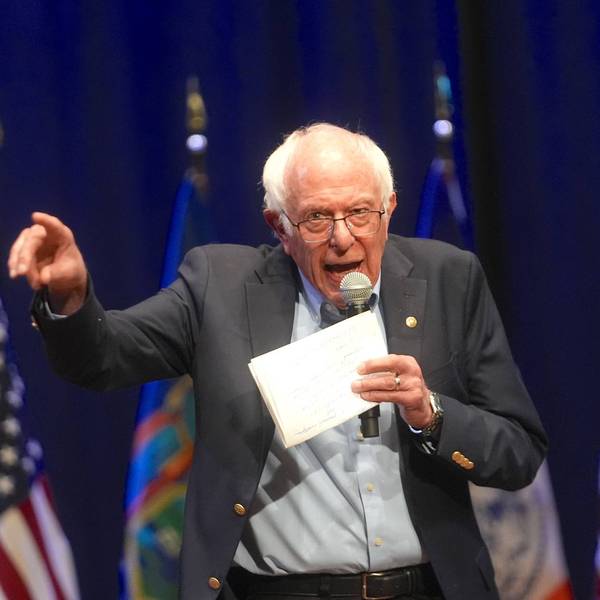Roughly six months after Hurricane Maria slammed into Puerto Rico, the island's governor signed into law "education reform" legislation that he says "puts our students first" but that critics say stinks of a privatization plan that will do nothing to help students.
The plan will consolidate schools and allow for charter schools and vouchers--ideas that are not endorsed by the Puerto Rico Teachers Association (Asociacion de Maestros de Puerto Rico).
Another teacher's union, the Federacion de Maestros de Puerto Rico, vowed that it, alongside teachers, parents, and students, would "defeat the false reform with the struggle on the street and in schools."
Offering background, education historian Lauren Lefty wrote at Jacobin:
In the wake of twin disasters--one man-made in the form of a vulture fund-fueled debt crisis, and one natural in the form of last September's Hurricane Maria -- Puerto Rican leaders are attempting to implement a vast austerity program, claiming it will solve the island's economic woes. In the eyes of many Puerto Ricans, however, this is textbook "disaster capitalism": capitalizing on a moment of crisis, when the population is weak and unable to mobilize, to ram through pro-market austerity measures.
Although the government has slowly been rolling out austerity measures since the debt crisis began, post-hurricane, it's doubled down. And the island's public school system is one of the leading targets.
Among critics' targets is Julia Keleher, Puerto Rico's non-Puerto Rican Education Secretary, who, in the wake of the hurricane said the storm was a "real opportunity to press the reset button." Her role, Lefty argued, "highlights the island's precarious colonial status and harkens to even less sovereign days."
As NPR reported earlier this month,
teachers' unions in Puerto Rico have responded to the government's proposed overhaul with protest, anger, and derision. Since Gov. Ricardo Rossello presented it to the legislature last month, critics have said he and Keleher are using the damage that Hurricane Maria inflicted on the island and its schools as justification to push privatization, much like the governor recently announced his intention to sell off Puerto Rico's publicly owned electric grid.
"We are disappointed the powers that be in Puerto Rico have bought the wrongheaded DeVos and Trump spin that charters and vouchers are a panacea," American Federation of Teachers president Randi Weingarten said recently.
Responding to the new law, education historian Diane Ravitch writes that it marks "a sad day for Puerto Rico." She continues:
The Governor imagines he will save money by handing public money over to charters and vouchers.
Does he know that charters demand equal funding and choose the students they want?
Does he know that voucher students get worse results than their peers in public schools?
Probably the hedge funds that own the Commonwealth's debt didn't tell him.
Puerto Rico is now open to edupreneurs, no-excuses charters, and corporate exploitation of its children.




